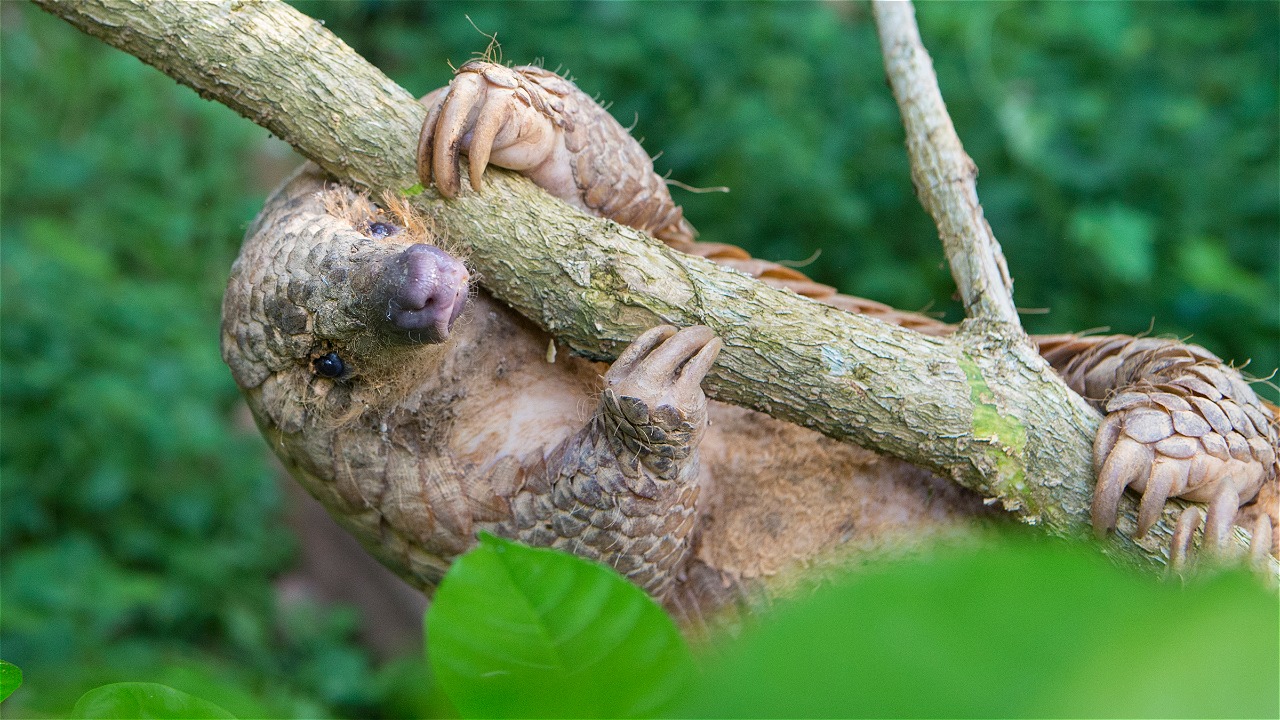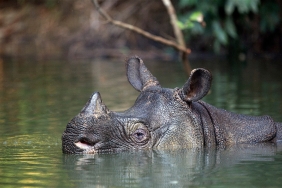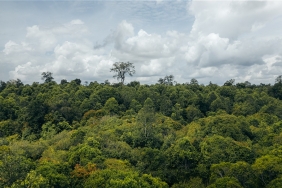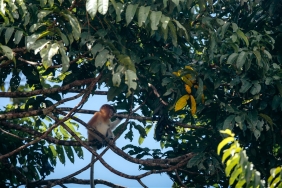THE STRETCH OF MONEY LAUNDERING CASE OF PANGOLIN BUSINESS IN RIAU
By Fitriani D. Kurniasari
A list together with Jikalahari and WWF held a case expose on the trial of a case of money laundering (TPPU) from the illegal trade of protected animals. The discussion held on October 1 revealed the facts and findings of the trial of the defendant M. Ali Honopiah for pangolin (Manis javanica) trade with a transaction value of Rp. 7 billion throughout 2017.
M. Ali Honopiah was charged with Indonesian Law No. 8/2010 article 5 paragraph 1 on ML. From the trial, it was known that the defendant was an active member of the National Police since 2003. The defendant, who lives in Tembilahan, Riau, has been in the pangolin business since 2006 when he was assigned to Bengkalis. He could earn up to Rp. 20 million per month. With growing profits, Ali Honopiah was assisted by his younger brother, Muhammad Ali. In 2011, Ali Honopiah handed over the reins of his illegal business to his younger brother and he moved to another area. Despite his transfer, Ali Honopiah remained in full control as the director and financier of the illicit business.
Pangolins sold by Ali Honopiah are sourced in areas around Riau, West Sumatra and Jambi. Muhammad Ali admitted that he could pick up hundreds of pangolins from collectors in the area which he then drove to the Bengkalis border to be picked up by a foreign ship that was waiting in the middle of the sea. From the trial, it was also known that there was one person named Mr. L, a pangolin toke located in Malaysia to whom the pangolins were sent.
From the observation of WWF Riau's Wildlife Crime Team (WCT), throughout 2017 Riau province law enforcement officers have thwarted four pangolin smuggling cases with a total of 355 pangolins including pangolin scales weighing 10.5 kg.
M. Ali Honopiah was one of the two perpetrators arrested by officers in late October 2017. He was arrested along with his younger brother Muhammad Ali by police officers while traveling from Jambi to Pelalawan (Riau) to transport Bengkalis pangolins to be shipped overseas. On July 5, 2018, Ali Honopiah was sentenced to 3 years in prison and a fine of IDR 100 million by the Pelalawan District Court for his involvement in the illegal trade of protected wildlife. From the development of this case, law enforcement then obtained evidence that Ali Honopiah was involved in money laundering from various transactions he carried out involving several people around him.
Apart from being assisted by his younger brother, Ali Honopiah was also assisted by his brother-in-law named Zabri (Z). Ali Honopiah used Zabri's account to hide the money from the sale of pangolins. During the trial, Ali Honopiah admitted that he told Z to open a new account on his behalf. He did this so that no one would sniff out his pangolin business.
The discussion of this case was held ahead of the reading of Ali Honopiah's indictment which will be held some time in the future. Since last July, Senarai together with Jikalahari and WWF have been monitoring the trial process of Ali Honopiah's money laundering case held by the Pekanbaru District Court. This was done to ensure that the legal process against M. Ali Honopiah runs in accordance with the applicable legal procedures.
The TPPU case is of serious concern to Senarai, a publication and discussion media related to corruption, ecology, social and cultural issues. Senarai Coordinator Ahlul Fadly said that the public prosecutor should give maximum charges to Ali Honopiah under Article 3 of Law No. 8/2010 on the Prevention and Eradication of Money Laundering. Senarai recommends that the prosecutor charge Ali with 15 years in prison, a fine of Rp 8 billion and an additional sentence to return the money from the sale of pangolins of Rp 7.1 billion.
"Maximum demands should be given because Ali, a member of the National Police, does not set an example as a law enforcer who must obey and comply with the law," said Ahlul Fadli.
"We hope that the charges must be severe, because Ali Honopiah is a law enforcement officer, a person who obeys and obeys the law. Don't let the sentence be light. One more thing, investigators must dig further into the people behind Ali. They must also track down this Mr. Lim who is in Malaysia. This is because it is transnational trade." Added Suryadi, Senarai's trial monitoring team.
Meanwhile, Osmantri, WWF Riau's Wildlife Crime Coordinator, expressed his appreciation to law enforcement for the development of wildlife crime cases to money laundering. According to WWF records, especially in Riau, this is the first time this has happened with the hope that many other cases can be developed.
Pangolins (Manis javanica) are shy animals that live in tropical forests and can be found throughout Indonesia. This unique ant- and termite-eating mammal has scales all over its body. Unfortunately, it has become an illegal trade commodity with a high value. According to the Convention on International Trade in Endangered Species of Wild Flora and Fauna (CITES), pangolins are the most trafficked animal.





